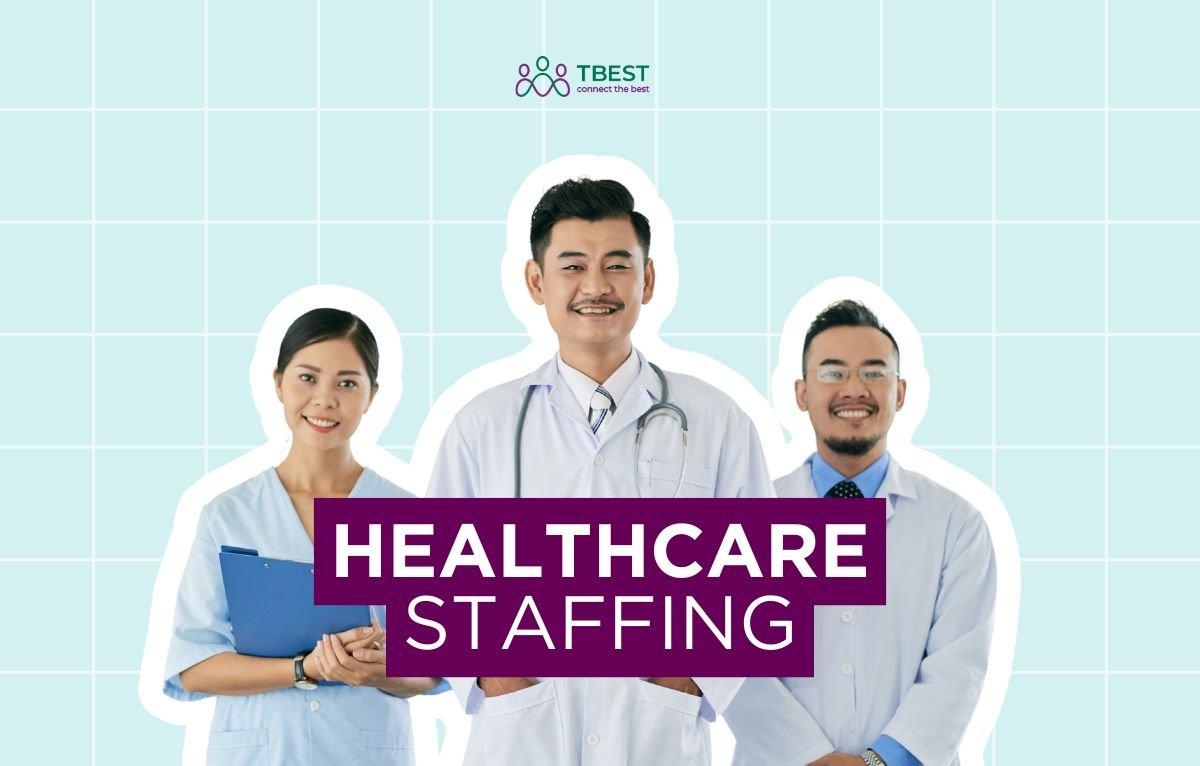
Staffing shortages in healthcare are nothing new, but the challenge has grown in recent years.
Hospitals, clinics, and long-term care facilities are scrambling to fill essential roles — from registered nurses to allied health professionals — all while maintaining patient care standards. The pressure is real, and so is the impact.
According to the American Hospital Association, over 100,000 nursing positions went unfilled in 2023 alone, creating a domino effect on care quality and burnout rates.
Finding and keeping good staff isn’t just about job boards anymore.
It’s about having access to reliable, skilled professionals, often at short notice. That’s where healthcare staffing solutions come in.
These services are designed to help facilities stay fully staffed, even during peak demand.
But not all staffing services are created equal. Let’s look at what makes a solution actually helpful — and how to choose one that works for your team and your patients.
Why Healthcare Staffing Is in Crisis
Staffing shortages aren’t just a temporary issue — they’re structural. The causes are layered:
- Aging workforce: Many healthcare professionals are retiring faster than they can be replaced.
- Burnout: A survey by McKinsey showed 32% of nurses planned to leave direct patient care roles within the year.
- Population growth and demand: As more people require care, the supply of providers isn’t keeping up.
- Training gaps: Education pipelines can’t keep up with workforce demands.
This has led to a surge in interest in healthcare staffing solutions, which can act as a safety net for hospitals and clinics struggling to find people fast.
What Makes a Staffing Solution Actually Useful?
Not every service calling itself a healthcare staffing provider offers real value. Here’s what to look for:
| Feature | Why It Matters |
| Speed and responsiveness | Can they fill roles quickly, especially during emergencies? |
| Credentialing | Do they thoroughly vet and certify their staff? |
| Industry focus | Are they focused only on healthcare, or spread across other industries too? |
| Placement flexibility | Do they offer per diem, temp-to-hire, or travel staffing? |
Healthcare staffing solutions that check these boxes are more likely to help you stay compliant, avoid last-minute chaos, and maintain quality care.

Most Requested Healthcare Roles Right Now
Wondering what positions are most in demand? Here’s a breakdown of what facilities are asking for the most, based on national trends:
- Registered Nurses (RNs)
- Licensed Practical Nurses (LPNs)
- Certified Nursing Assistants (CNAs)
- Medical Technologists
- Radiologic Technicians
- Respiratory Therapists
- Physical and Occupational Therapists
This demand isn’t just for hospitals. Home health, rehabilitation centers, and assisted living communities are also heavily reliant on staffing services.
How Staffing Services Help Cut Costs (Not Just Add Them)
Outsourcing staffing might seem expensive at first, but it can actually save money in the long run. Here’s how:
- Avoiding overtime burnout: Relying on existing staff too heavily leads to errors, absenteeism, and turnover.
- Reducing turnover costs: Hiring and training new staff is expensive. Temporary staff can cover gaps until the right full-time fit is found.
- Improved patient outcomes: Fewer mistakes, better care, and higher satisfaction help your facility avoid penalties.
According to Becker’s Hospital Review, hospitals lose $5.2M annually on average due to nurse turnover. Having a reliable staffing partner keeps that figure lower.
How Do Healthcare Staffing Solutions Work?
Here’s a simplified view of how these services operate:
- You submit a staffing request (including role, shift, duration).
- The agency screens and matches from its candidate pool.
- You approve or reject the candidates.
- They handle onboarding, compliance checks, and payroll.
- You get the coverage — without dealing with paperwork or HR overload.
At TBest Services, for example, clients can request per diem nurses, travel staff, or long-term placements — and get matches within 24–48 hours in many cases.

What Should I Ask Before Partnering with a Staffing Agency?
If you’re considering using healthcare staffing solutions, here are some questions to ask during the vetting process:
- How do you screen your healthcare professionals?
- What’s your fill rate for urgent requests?
- Do you offer 24/7 support?
- Can I get local and travel candidates?
- Do you handle payroll and insurance?
These questions help filter out services that might leave you hanging when you need them most.
What’s the Long-Term Benefit of Using Staffing Services?
While short-term relief is often the goal, long-term benefits include:
- More time to focus on permanent hiring
- Better workforce planning based on real-time needs
- Consistent patient care delivery
- Lower turnover among full-time staff (since they’re less overworked)
As more facilities move toward hybrid staffing models, having a staffing partner is becoming part of a smart HR strategy — not just an emergency measure.
Conclusion
If your facility is dealing with high turnover, open roles, or staff burnout, it’s time to rethink your hiring strategy. The right healthcare staffing solutions will help you avoid disruptions, improve care, and reduce stress across your team.
TBest Services connects healthcare facilities with qualified nurses and allied health professionals across the U.S. With fast turnaround, flexible placements, and deep industry knowledge, we help organizations fill roles without the usual hiring headache.
Whether you need temporary coverage or long-term placements, we’re ready to help you find the right fit — so you can focus on care, not chaos.

